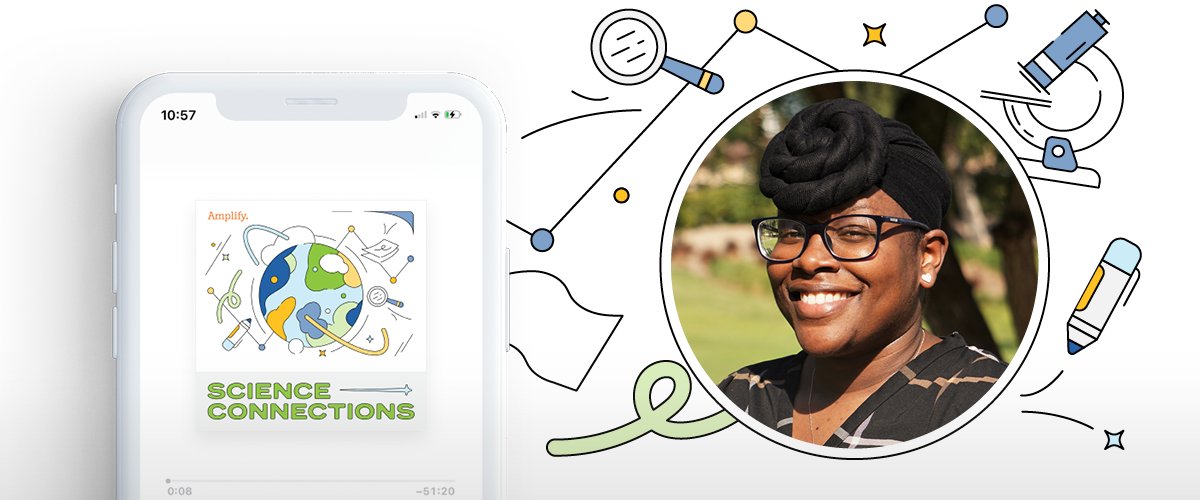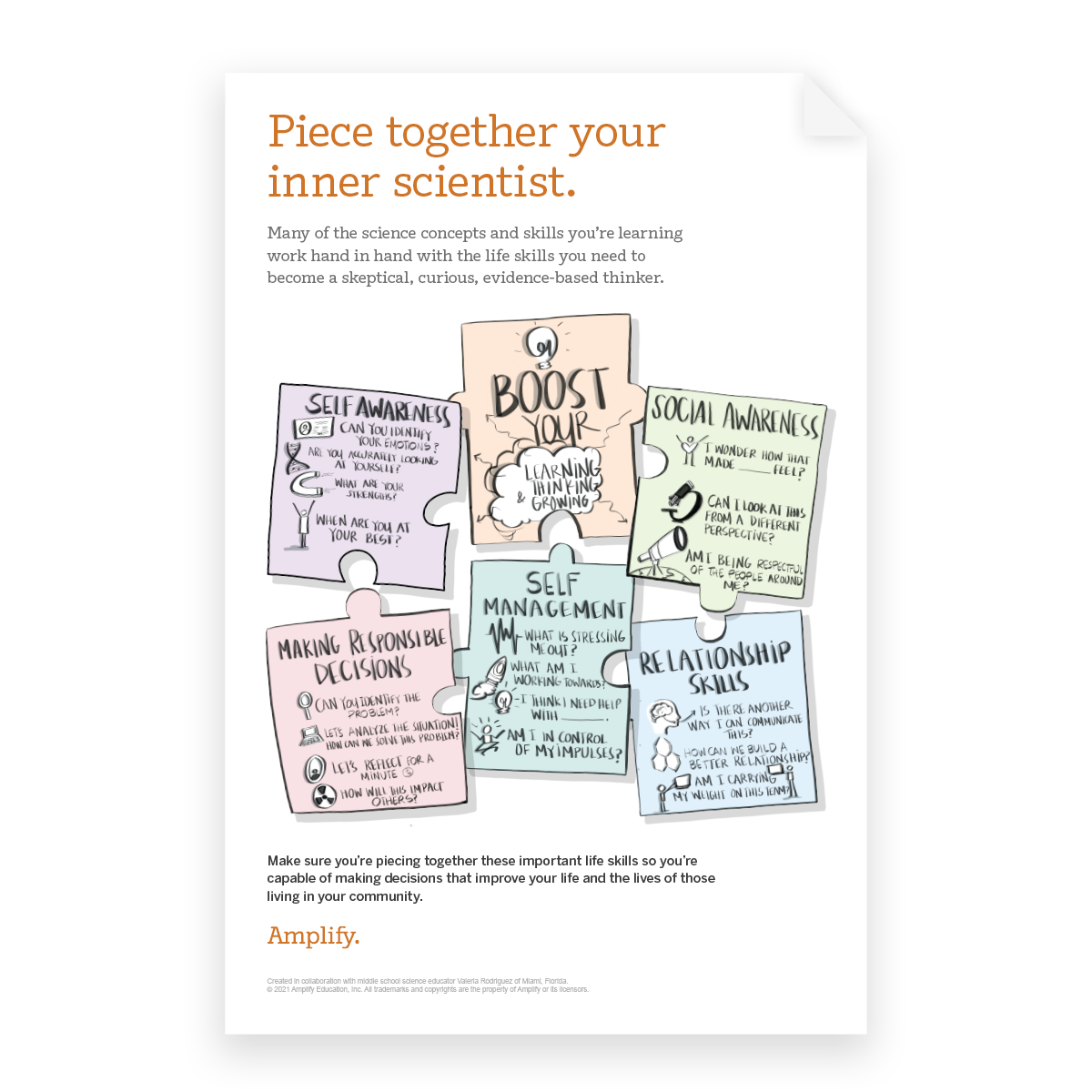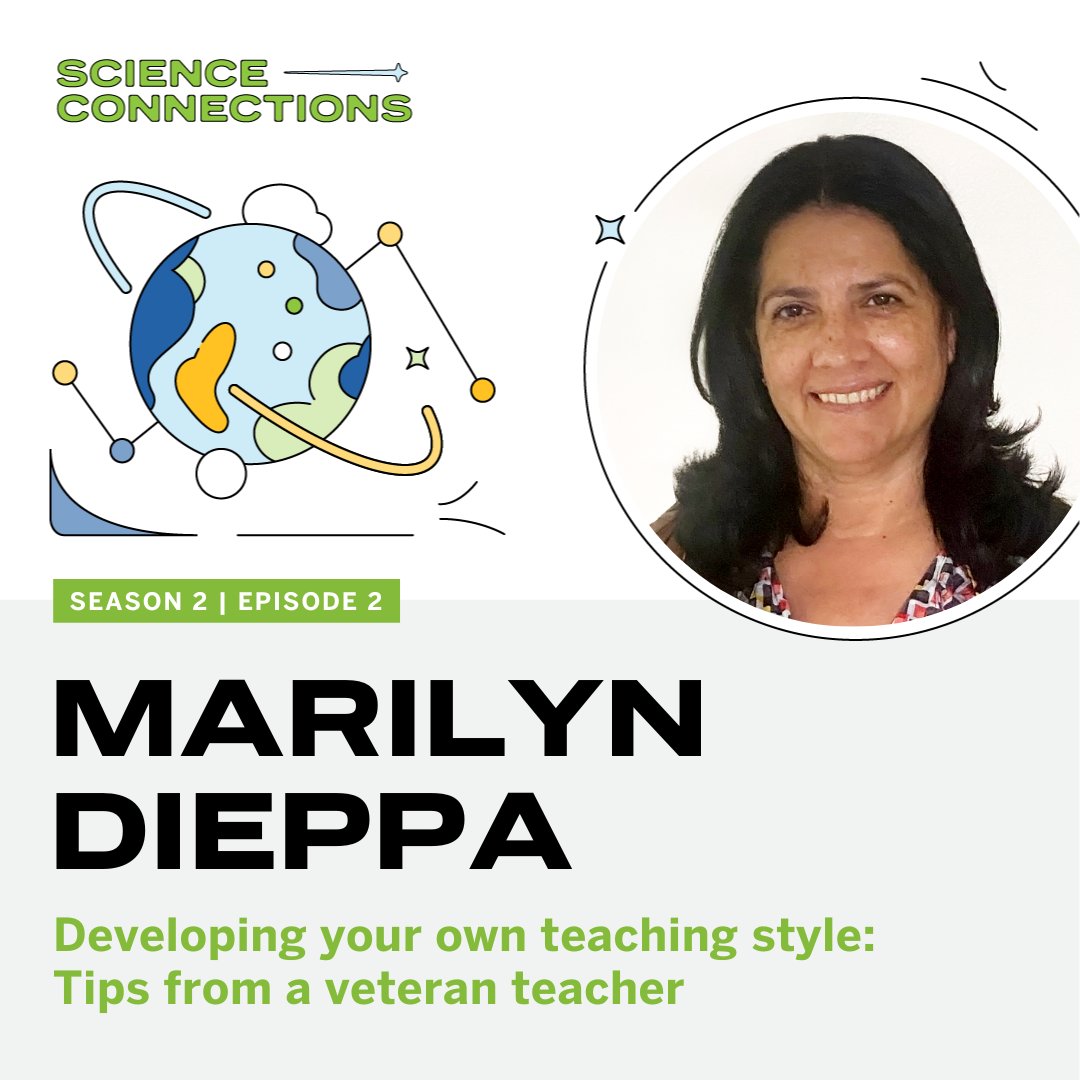
Which practice is at the top of the eight NGSS Science and Engineering Practices? Good question! ItÔÇÖs asking questions and defining problems.
And why is asking questions so important? (Also a good question.) 
Because science isnÔÇÖt just facts. Science is a process of finding answersÔÇöa process that starts with questions. ThatÔÇÖs why students learn like scientists best in a science classroom defined by phenomena-based learning, also known as inquiry-based learning.┬á┬á
How can science educators bring this approach into the classroom? 
ThatÔÇÖs one question host Eric Cross and science educator and professional development facilitator Jessica Kesler address in the latest episode of ╗ã╣¤╩ËãÁÔÇÖs Science Connections: The Podcast.
The power of questions
KeslerÔÇÖs mission at , a Tiger Woods charity, is to empower educators to create engaging classrooms that foster future leaders.
ÔÇ£We train teachers on STEM competencies and the pedagogical tools and strategies to implement the STEM weÔÇÖre doing in our learning labs,ÔÇØ she says. ÔÇ£Then they can implement it in the classroom and have this multiplicative effect that can help us reach millions of kids and prepare them for careers.ÔÇØ
Those pedagogical approaches include student-centered learning practices. Using those practices, teachers spend less time delivering facts and more time asking questions, while developing studentsÔÇÖ ability to do the same.
ThatÔÇÖs how we shift science from, as the NGSS frames it, ÔÇ£learning aboutÔÇØ to ÔÇ£figuring out.ÔÇØ
Per the : ÔÇ£The point of using phenomena to drive instruction is to help students engage in practices to develop the knowledge necessary to explain or predict the phenomena. Therefore, the focus is not just on the phenomenon itself. It is the phenomenon plus the student-generated questions about the phenomenon that guides the learning and teaching. The practice of asking questions or identifying problems becomes a critical part of trying to figure something out.ÔÇØ
Inquiry-based learning examples and approaches
Kesler recognizes that a shift to inquiry-based learning cant be made overnight, or all at once. We never suggest overhauling your classroomadd a little bit here and there and see how it impacts your students.
Here are some strategies Kesler suggests for empowering educators to deliver inquiry-based science learning.
- Cultivate an inquiry mindset. We live in a world where answers to pretty much everything are right on our phones, right in our pockets. That ease and accessibility can dampen student curiosity. But when teachers start shifting focus from asking students for answers to asking them to develop smart questions, students can grow that mental inquiry muscle.
- Make inquiry visible. No need to be sneakyÔÇöyou can be explicit with students about what youÔÇÖre doing, and what youÔÇÖre inviting them to do. Think: ÔÇ£What are tools and strategies you can use so that students can illuminate their thinking for themselves and for you and their peers?ÔÇØ Kesler says. ÔÇ£So the students get to see their own thinking as they progress, and you get to tell the story of how their minds have evolved.ÔÇØ Paying attention to student questions also enables you to observe where students are making mistakes, where misconceptions come up, and where you should target your next lesson, Kesler adds. ÔÇ£So it makes you more responsive in the moment.”
- Build an inquiry environment. Asks Kesler: ÔÇ£What are the things that you can embed into your physical space and develop in a studentÔÇÖs intellectual space that will help you create a holistic inquiry environment?ÔÇØ ThereÔÇÖs no one right answer, but a shift in environment can support a shift in intellectual approach. (Consider the opposite: ÔÇ£If you take someone out of an old habit or space and tell them, ÔÇÿWe are gonna change your minds and teach inquiry,ÔÇÖ but put them back in the same environment, theyÔÇÖre going to be conflicted,ÔÇØ Kesler says. You could create displays that present questions rather than facts, or arrange the room to support conversation rather than lectureÔÇöwhatever makes sense for your space.
Definitely test, explore, experimentÔÇöeven take risksÔÇöand ask your own questions. After all, the inquiry mindset is for you, too!
Learn more
Explore how ╗ã╣¤╩ËãÁ Science supports inquiry-based learning.
Listen to all of Season 1, Episode 10, Empowering the science educator: Jessica Kesler, and find more episodes and strategies from ╗ã╣¤╩ËãÁ’s Science Connections: The Podcast.


